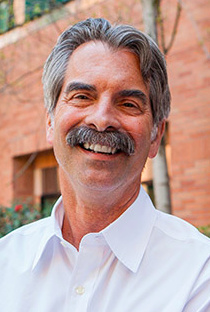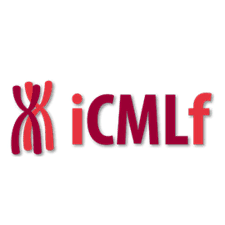

Jerald Radich recieves 2023 iCMLf Rowley Prize
Dr. Jerald Radich, professor (Medical Oncology) and director of the Radich Laboratory and the Molecular Oncology Laboratory at the Fred Hutchinson Cancer Center is the winner of the 2023 Rowley Prize from the International Chronic Myeloid Leukemia Foundation (iCMLf).
The iCMLf Rowley Prize is awarded to celebrate people who have made outstanding lifetime contributions to the understanding of the biology of Chronic Myeloid Leukemia (CML).
“I am honored and humbled by receiving the Rowley Prize. To be included in the company of past winners, under the name of the miraculous Janet Rowley, strains my belief and comprehension. I cannot adequately enough thank those who have given me this award, and those in my lab who have actually done the work.”
-Dr. Jerry Radich
Radich receives the Rowley Prize in recognition of his visionary work and breakthroughs in investigating the molecular foundation of therapy response, resistance and relapse in CML as well as the development of modern molecular biology techniques towards the early detection of leukemia.
Since his early pioneering research in detecting residual disease in CML patients, he dedicated his scientific work to exploring genetic signals of treatment response, progression and relapse. What drives him is to look behind ‘the biology of luck’ as he calls it and to understand how specific genetic variants influence treatment response.
The Radich Laboratory at the Fred Hutchinson Cancer Center was one of the first to document that monitoring levels of the BCR::ABL1 fusion mRNA can be used to detect minimal residual disease and to predict relapse before CML cells can be detected by previously standard tests. Radich and his team also helped to establish the International Scale for BCR::ABL1 testing.
He was also involved in the development of the first automated assay for BCR::ABL1 (GeneXpert®). He and his team also devised a method to detect BCR::ABL1 mRNA levels as well as resistance mutations in dried blood spots that can be shipped from centres around the world.
A major current research focus of the Radich Laboratory is on deciphering ‘clonal evolution’ in CML using highly sensitive genetic tests to characterize these time-dependent changes in many different leukemia cases.
His research team also works on gene expression profiles of response and progression using microarray gene expression analysis to examine the expression patterns of thousands of genes during the progression of CML.
In addition, they are using this technology to examine the gene expression patterns associated with immune response to CML to better understand the biology of deep molecular response, and the achievement of treatment-free remission.
Dr. Jerald (Jerry) Radich is the director of the Radich Laboratory and the Molecular Oncology Lab at the Fred Hutchinson Cancer Center in Seattle. He is a member and Kurt Enslein Endowed Chair in the Clinical Research Division of the Fred Hutchinson Cancer Center, and a professor of medicine at the University of Washington School of Medicine.
As a world-recognized expert in CML, he was the past chair of the CML Guideline Panels for the National Comprehensive Cancer Network and the European LeukemiaNet. He is chair of SWOG Leukemia Translational Medicine Committee, the inaugural chair of the National Cancer Institute Leukemia Steering Committee, and was on the Board of Scientific Counselors, NIH Genome Research Institute. He also serves on the Board of Directors of two not for profit organizations, the Max Foundation and the International CML Foundation.
He earned his medical degree from the University of California Davis, School of Medicine and conducted fellowships in medical oncology at the University of Washington and the Fred Hutchinson Cancer Center.